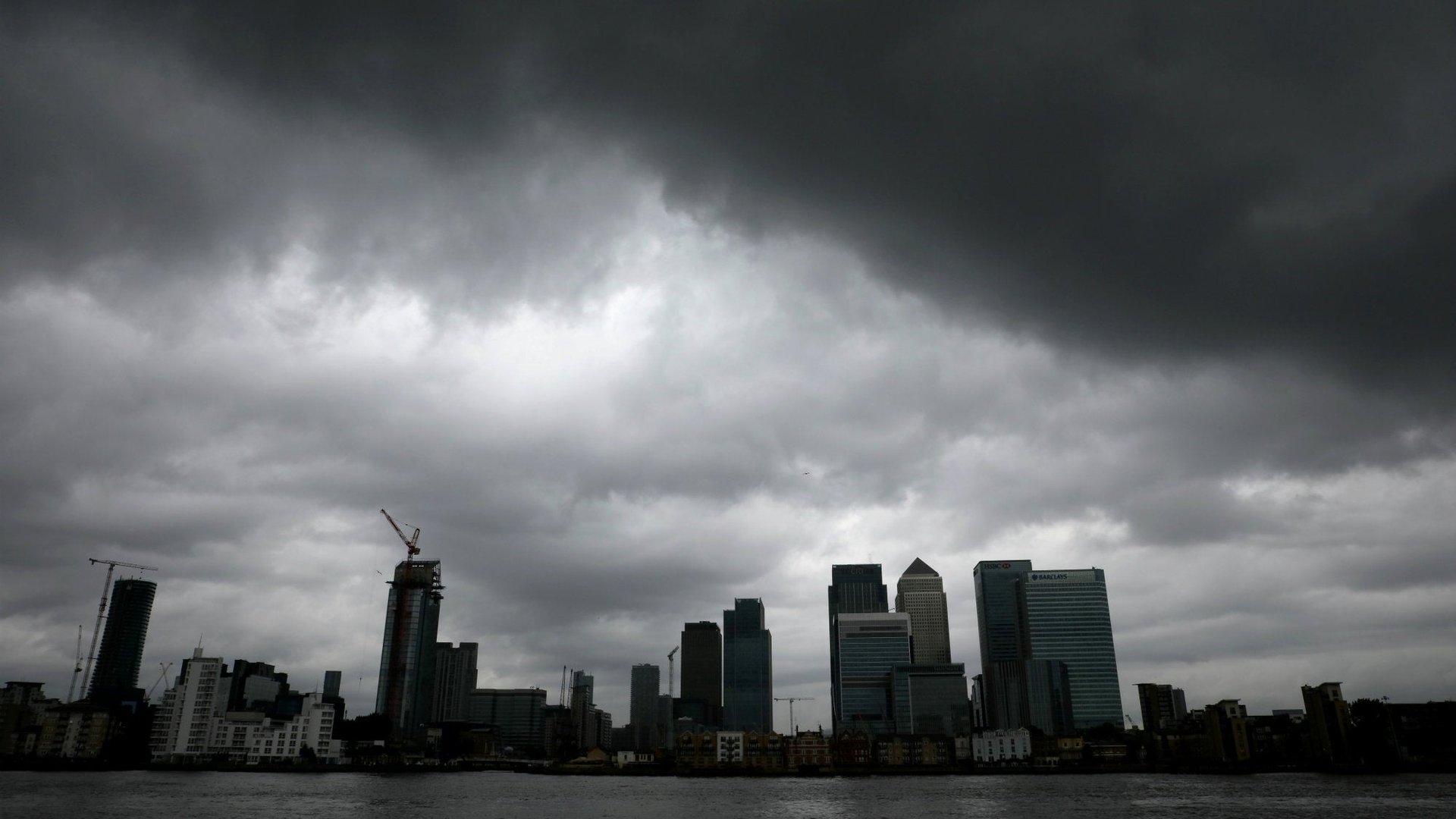British funds are freezing withdrawals, reviving scary memories of the global financial crisis
Jittery investors sent the British pound to a new post-Brexit low today (July 5), amid some uncomfortable echoes of the early stages of the global financial crisis.


Jittery investors sent the British pound to a new post-Brexit low today (July 5), amid some uncomfortable echoes of the early stages of the global financial crisis.
In the past 24 hours, three different UK property funds have frozen withdrawals, citing a rush by investors to pull out their money in the wake of the UK’s vote to leave the EU. In 2007, Bear Stearns banned withdrawals from one of its hedge funds after investors were spooked by rising defaults and bankruptcies.
The British property funds are very different beasts from the exotic, derivative-laced vehicles that presaged the global financial meltdown. These funds are open to regular retail investors and invest in things like office parks and malls. The freezes are the “first red flag we’ve seen so far” that Brexit—as many feared—would roil the UK’s real estate market, says Eduardo Gorab, a property economist at Capital Economics.
The frozen funds
- Standard Life froze a £2.9 billion fund on July 4 (pdf)
- Aviva froze a £1.8 billion fund on July 5
- M&G Investments froze a £4.4 billion fund on July 5 (pdf)
For those keeping score, that’s £9.1 billion ($11.9 billion) in assets that are now off-limits to their owners, or around a quarter of all open-ended commercial property funds in the country. Why is this sector getting hit so hard after Brexit? Weakening economic growth and a falling pound aren’t good for consumer spending, which isn’t good for malls. And if companies looking for a foothold in the EU move out of the UK post-Brexit, that’s not good for offices.
M&G, the latest fund manager to freeze withdrawals, cited a similar reason to the others: “Investor redemptions in the Fund have risen markedly because of the high levels of uncertainty in the UK commercial property market since the outcome of the European Union referendum.”
Halting trading in the fund for a month will give the fund the time to raise enough cash to meet withdrawal requests—a slow process when money is locked in hard assets like office buildings instead of liquid securities like stocks or bonds.
For perspective, all of the funds like the ones now frozen only represent roughly 7% of total investment in UK commercial real estate, according to the Bank of England. As it happens, the central bank published a big report today flagging key post-Brexit risks to the UK financial system, with commercial-property shakiness among the biggest worries.
Flighty, anxious retail investors could make the turmoil worse, if their collective rush for the exits forces funds to sell property in haste, dragging down valuations across the industry. There are no indications, as of yet, that larger funds catering to institutional investors are under similar stress, although property companies’ shares have been among the hardest hit since the referendum.
In places like London, valuations and investment flows have been incredibly strong until recently, buoyed by an influx of foreign money. Brexit-driven uncertainty is now a factor, but a daunting pipeline of property under construction and “stretched” valuations from the recent boom times have also been giving investors pause, Gorab says.
In other words, we may be seeing a correction, not a panic. Recent retrenchments in a niche corner of the investment industry do not necessarily imply a bigger, broader problem. But that’s what some said about fund freezes back in 2007, too.